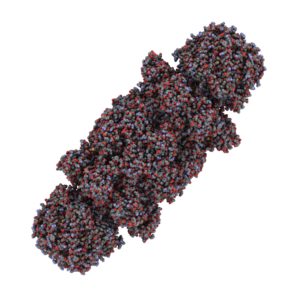The Dana-Farber Targeted Protein Degradation Webinar Series discusses new discoveries and modalities in protein degradation.
In this webinar, Senior Research Scientist, Dr. Danette Daniels, focuses primarily on proteolysis-targeting chimeras, or PROTACs. A variety of topics are covered including the design, potency, and efficacy of PROTACs in targeted protein degradation. Watch the video below to learn more about how PROTACs are shifting perspectives through fascinating research and discoveries in targeted protein degradation.
Learn more about targeted protein degradation and PROTACS here.

